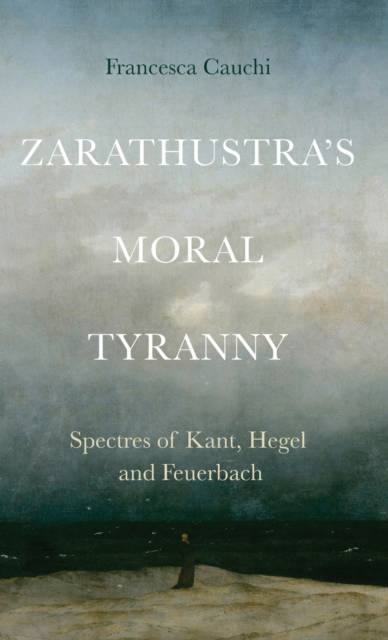
Je cadeautjes zeker op tijd in huis hebben voor de feestdagen? Kom langs in onze winkels en vind het perfecte geschenk!
- Afhalen na 1 uur in een winkel met voorraad
- Gratis thuislevering in België vanaf € 30
- Ruim aanbod met 7 miljoen producten
Je cadeautjes zeker op tijd in huis hebben voor de feestdagen? Kom langs in onze winkels en vind het perfecte geschenk!
- Afhalen na 1 uur in een winkel met voorraad
- Gratis thuislevering in België vanaf € 30
- Ruim aanbod met 7 miljoen producten
Zoeken
Zarathustra's Moral Tyranny
Spectres of Kant, Hegel and Feuerbach
Francesca Cauchi
Hardcover | Engels
€ 152,95
+ 305 punten
Uitvoering
Omschrijving
By way of a sustained interrogation of Zarathustra's doctrine of self-overcoming, Francesca Cauchi lays bare the asceticism underlying the prescriptive injunctions set forth in the first two parts of Thus Spoke Zarathustra. These injunctions fall under three heads: self-legislation, self-denial and self-sacrifice, which are shown to bear striking affinities with concepts first formulated by Kant, Hegel and Feuerbach, respectively. In Cauchi's new reading, the Kantian rational will, the Hegelian 'labour of the negative' and Feuerbach's indivisible trinity of love, sacrifice and suffering are seen to resurface in Zarathustra as the agents of a ferocious and self-eviscerating doctrine of self-overcoming that exhibits all the attributes of a moral tyranny.
Specificaties
Betrokkenen
- Auteur(s):
- Uitgeverij:
Inhoud
- Aantal bladzijden:
- 216
- Taal:
- Engels
Eigenschappen
- Productcode (EAN):
- 9781399504317
- Verschijningsdatum:
- 29/11/2022
- Uitvoering:
- Hardcover
- Formaat:
- Genaaid
- Afmetingen:
- 140 mm x 216 mm
- Gewicht:
- 399 g

Alleen bij Standaard Boekhandel
+ 305 punten op je klantenkaart van Standaard Boekhandel
Beoordelingen
We publiceren alleen reviews die voldoen aan de voorwaarden voor reviews. Bekijk onze voorwaarden voor reviews.









